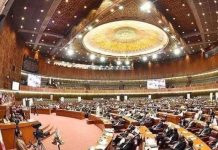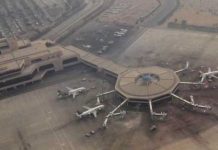BAKU, APR 26 (DNA) – Against this challenging global context, the Government of Azerbaijan in partnership with UNESCO, UNAOC, UNWTO, the Council of Europe and ISESCO will host the 5th World Forum on Intercultural Dialogue under the motto of “Building dialogue into action against discrimination, inequality and violent conflict” on 2-3 May, 2019 in Baku, Azerbaijan.The 5th World Forum will examine the critical role of Intercultural Dialogue as an actionable strategy for building human solidarity and helping localities counter the violence and discrimination in diverse communities.
Moreover, the 2nd High Level Panel of the Heads of International Organizations and the Ministerial Panel will also be held within the Forum in order to build synergy and partnership among political, economic, financial, military, humanitarian and social organizations along with other stakeholders to elaborate a common roadmap for assisting public, private and third sector organizations in building inclusive and sustainable societies through promoting intercultural dialogue and human dignity.
Launched in 2008, the Baku Process has for 10 years worked to create a positive platform for an open and respectful exchange of views between individuals and groups with different ethnic, cultural, religious and linguistic backgrounds, living on different continents, on the basis of mutual understanding and respect.
Recognising the success of the Baku Process to date, the UN Secretary-General’s Annual Report (2017) to the UN General Assembly on intercultural and interreligious dialogue and a culture of peace (A/72/488) contained a reference to the World Forum on Intercultural Dialogue, as a key global platform for promoting intercultural dialogue. One of the two corresponding resolutions (A/RES/72/136) also emphasized the importance of the Baku Forum.
Convened every two years, the Baku Process’s seminal event is the World Forum on Intercultural Dialogue.
Throughout the first four editions of the Forum, organized by the Government of Azerbaijan in partnership with UNESCO, the UN Alliance of Civilizations, UNWTO, the Council of Europe, ISESCO, and, in 2017 the UNFAO, participants sought to understand how dialogue within diverse communities has the potential to create tension – such as when mistrust and misunderstanding is exposed – but also to build understanding. In exploring this, and related themes, previous Forums have sought to strengthen and broaden the conceptual basis and operational definition of ICD in order to achieve a real sense of global application, moving from a suggested Euro-centricity or ‘Western’ focus to embrace wider socio-cultural contexts and genuinely universal values.
WFID 2019 will seek to build on this solid foundation to help mobilise intercultural dialogue for concrete transformative action. It does so with the foundational belief that whilst the “super diversity” characterising contemporary communities represents a significant policy challenge, it also offers real benefits.
Whilst previous Forums gave a lot of attention to state-led, ‘top down’ leadership initiatives, WFID 2019 will seek to examine broader multi-level and multi-sectoral engagement with ICD, highlighting the critical role of local governance structures and individual actors.
It will encourage more discussion of working within and between cultures to promote contact and exchange that reinforces the benefits of diversity and peaceful co-existence.=DNA
=============











